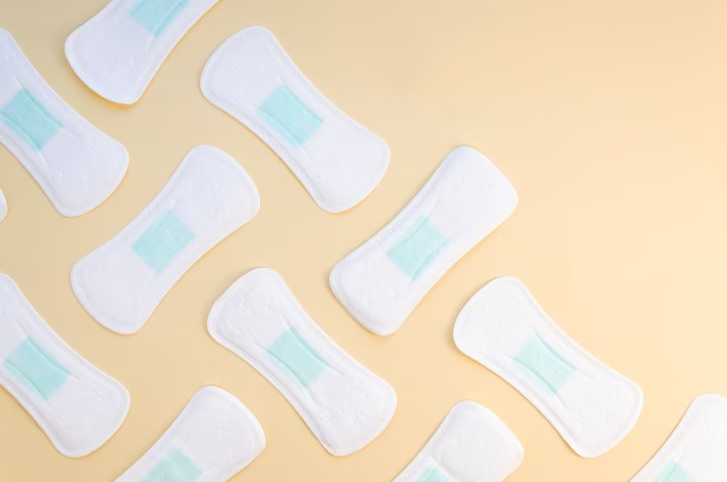Menstruation is a natural process that every woman goes through, and wearing pads is one of the most common practices during this time. However, sometimes women tend to wear pads for too long, which can cause various health issues.
In this article, we will discuss what happens if you wear a pad for too long, the risks associated with it, and the precautions you should take to avoid any health issues.
What Happens if you Wear a Pad for Too Long?
Wearing a pad for too long can cause various health issues, including:
Bacterial Infections
When you wear a pad for too long, the moisture and warmth can create an environment that is ideal for bacterial growth. This can lead to infections such as urinary tract infections (UTIs) or vaginal infections.
Skin Irritation
Wearing a pad for too long can cause skin irritation, redness, and rashes in the genital area. This can be uncomfortable and painful.
Bad Odor
When you wear a pad for too long, it can emit a bad odor due to the bacteria and other substances that accumulate on the pad.
Toxic Shock Syndrome (TSS)
TSS is a rare but serious bacterial infection that can occur when you wear a pad for too long. It can lead to symptoms such as fever, vomiting, and a rash. If left untreated, it can be life-threatening.
Read: Causes of Menstrual Pain, Infertility and Sexual Intercourse Pain
Risks Associated with Wearing Pads for Too Long
Here are some of the risks associated with wearing pads for too long:
Prolonged Exposure to Chemicals
Most pads contain chemicals such as dioxins, which can be harmful when exposed to for a prolonged period.
Reduced Airflow
Wearing a pad for too long can reduce airflow to the genital area, leading to a warm and moist environment that is ideal for bacterial growth.
Reduced Absorbency
When a pad is worn for too long, it can become saturated, reducing its absorbency. This can lead to leakage, which can be embarrassing and uncomfortable.
Precautions to Avoid Health Issues
Here are some precautions you can take to avoid health issues associated with wearing pads for too long:
Change Pads Regularly
It is recommended to change pads every four to six hours. If you have heavy bleeding, you may need to change them more often.
Use the Right Pad
Use a pad that is appropriate for your flow. Using a pad that is too thin or too thick can lead to leakage or discomfort.
Practice Good Hygiene
Wash your hands before and after changing your pad. Also, make sure to clean your genital area properly.
Consider Alternatives
Consider using alternatives to pads, such as tampons or menstrual cups, which can be more comfortable and hygienic.
Common Myths and Misconceptions About Menstrual Products
Menstrual products are an essential part of many people’s lives, but there are still a lot of myths and misconceptions surrounding them. Let’s take a closer look at some of the most common myths about menstrual products and separate fact from fiction.
Myth: Wearing a tampon can break your hymen
This is a common misconception. The hymen is a thin membrane that partially covers the vaginal opening. It can be stretched or torn during various activities, including exercise, tampon use, or even just through normal physical activity.
However, using a tampon does not necessarily cause the hymen to break, and breaking the hymen does not necessarily mean a woman has lost her virginity.
Myth: Menstrual cups are uncomfortable to wear
This myth is not necessarily true. While some women may find menstrual cups uncomfortable at first, many women find that they are just as comfortable as tampons or pads once they get used to them.
Menstrual cups are designed to be soft and flexible, and come in different sizes to accommodate different body types and menstrual flows.
Myth: You can’t swim while on your period
This is a common myth that has been perpetuated for years. In reality, it is perfectly safe to swim while on your period, and many women do so regularly. Wearing a tampon or menstrual cup can help prevent any leaks while swimming.
Myth: Wearing a pad can cause cancer
There is no evidence to suggest that wearing a pad can cause cancer. However, it is important to change your pad regularly to prevent the buildup of bacteria, which can increase the risk of infections.
Conclusion
Wearing pads is a common practice among women during their menstrual cycle, but it is important to be aware of the risks associated with wearing them for too long. Prolonged use of pads can lead to bacterial infections, skin irritation, bad odor, and even serious conditions like toxic shock syndrome.
To avoid these health issues, it is important to change your pad regularly, use the right pad, practice good hygiene, and consider alternative menstrual products. By following these precautions, you can keep yourself safe and healthy during your menstrual cycle.
